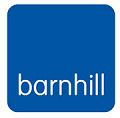Recently I wrote about my recollections of a Beatles track dating back to 1963. This week I want to refer to that year again, specifically 28 August of that year. As you may know, that date is the anniversary of the amazing “I have a dream” speech, by Martin Luther King, the Civil Rights activist.
The speech is highly significant of course, in the history of the fight against racism and for equality of Civil Rights in general in the USA. But in a business context, which is what I’d like to address here, the speech is equally significant for a number of very good reasons, which I’d like to bring to your attention.
Hearts and minds
Significant moments in history can teach us an awful lot about how we live today. We can’t all be great statesmen and orators, but we can learn from their work and adapt it for use in our own. If you’re making a speech with the aim of convincing people to follow you and share your passionate belief, then you absolutely need to appeal to the heart as well as the head. This rule applies equally well to a business presentation today, as it does to a famous rallying speech at a critical juncture in a violent and emotionally charged period in history. The point is that no one is stirred by rational argument alone. No one ever followed a spreadsheet. No one was ever persuaded to take action by a string of bullet points. No, if you want to engage your audience in a significant way, then you have to find a means of winning their hearts and minds.
Breaking down barriers
The second point to consider is authenticity and belief on a personal level. You must be yourself if your presentation is going to land effectively. The structure of your delivery has to be learnt, so that it becomes internalised and there is no barrier between yourself and your audience. In this respect, practice is key, to the point where the illusion is created that no formal structure or framework exists, and the connection between speaker and audience is total. Anything less than ‘total’ will not cut the mustard.
Silence is golden
The third most significant point in my opinion is to draw attention to the human voice and body language. Do not underestimate the power and uniqueness of the human voice. It is arguably your most significant weapon and one which deserves your attention and thought. By using its full range and varying tone, volume and speed, you will be amazed at what a powerful effect that can have on an audience. Even silence is a powerful weapon and one which many speakers ignore to their cost. Use silence well and you can caress your audience, make them feel respected by not babbling at them, or by creating a sense of drama for them to enjoy.
Building rapport
Finally, give a thought to the concept of followership. It’s an ungainly term I feel, but important to heed it in amongst all the clamour made constantly about leadership. Your audience, or your employees, can disengage at any time they like. The moment you stop working to keep the spirit of your rapport alive is the moment of greatest danger. You’re probably not aiming to make a speech which will be remembered nearly 60 years on from when it was delivered, but make your presentation well and it will become a building block of your rapport with your audience, which will continue to bolster you for many years.

